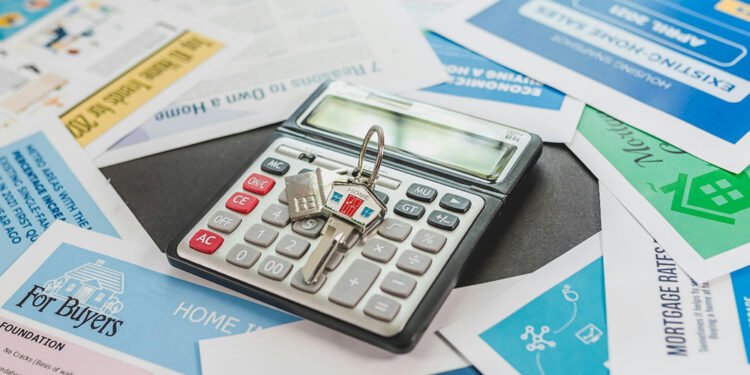Buying your first home is an exciting milestone, but it can also feel overwhelming, especially in a growing city like Austin, Texas. With its booming real estate market, diverse neighborhoods, and vibrant culture, Austin has become a top destination for first-time homebuyers. However, navigating the process in a competitive market like this requires careful planning and knowledge.
This guide offers important tips to help first-time homebuyers make good decisions and find the right home in the heart of Texas.
1. Set a Realistic Budget
One of the first things any first-time homebuyer should do is set a realistic budget. Before you begin your house hunt, take the time to thoroughly assess your financial situation. This includes reviewing your current income, expenses, savings, and any outstanding debts. By understanding exactly how much you can afford, you’ll avoid overextending yourself financially. Many experts recommend following the 28/36 rule, which suggests that your housing costs shouldn’t exceed 28% of your gross monthly income, and your total debt payments should be under 36%.
In addition to your mortgage payments, don’t forget to factor in other homeownership costs. This includes home insurance, maintenance, utilities, and, in some cases, homeowners’ association (HOA) fees. By accounting for these additional expenses upfront, you’ll be better prepared for the financial commitment that comes with homeownership.
2. Understand Local Property Taxes
When budgeting for your first home, it’s crucial to consider local property taxes. Property tax rates can vary significantly depending on where you live, and they can greatly impact your overall cost of homeownership. For instance, property tax rates in Austin Texas may differ from those in nearby cities or towns, and knowing these differences can help you make a more informed decision.
Research the property taxes in the area where you plan to buy a home. Be sure to look into how often these taxes are reassessed, as this can affect your long-term financial planning. Some areas have tax exemptions or rebates for first-time homebuyers or certain income brackets, so be sure to ask about those benefits when speaking with your real estate agent or financial advisor.
3. Get Pre-Approved for a Mortgage
Getting pre-approved for a mortgage is an essential step in the homebuying process. Before you start visiting homes and making offers, it’s a good idea to know exactly how much a lender is willing to loan you. The pre-approval process involves providing financial information to a lender, such as your income, credit score, and existing debts. Based on this information, the lender will determine how much you qualify to borrow.
Pre-approval not only gives you a clear understanding of your budget but it also shows sellers that you’re serious about buying. In competitive markets, pre-approved buyers are often favored over those who haven’t taken this step, as it reduces the likelihood of financing falling through at the last minute. By getting pre-approved, you can streamline the buying process and give yourself an advantage when negotiating with sellers.
4. Work with a Real Estate Agent
Navigating the real estate market for the first time can be daunting, which is why working with an experienced real estate agent can be incredibly beneficial. A real estate agent is not only there to help you find homes that meet your criteria but also to guide you through the more complex aspects of the process, such as negotiating with sellers and understanding the fine print in contracts.
Agents are also a valuable resource when it comes to understanding local markets. They can provide insights into neighborhoods, market trends, and property values that you might not easily find on your own. A good agent can help you avoid common mistakes, such as overpaying for a home or overlooking important details during inspections. Make sure to choose an agent who is familiar with the area where you want to buy and has a track record of successfully helping first-time buyers.
5. Prioritize Must-Haves and Nice-to-Haves
As a first-time homebuyer, it’s easy to get swept away by the excitement of finding the perfect home. However, it’s important to stay grounded by distinguishing between your must-haves and nice-to-haves. Must-haves are the essential features that a home must offer to meet your needs, while nice-to-haves are desirable but not deal-breakers.
When creating your list of must-haves, focus on the non-negotiables, such as the number of bedrooms, proximity to work or schools, and overall condition of the home. Nice-to-haves could include things like a spacious backyard, a modern kitchen, or hardwood floors. By prioritizing your needs, you can streamline your search and avoid getting distracted by features that don’t truly serve your long-term goals.
6. Research the Neighborhood
When purchasing a home, it’s essential to look beyond the property itself and thoroughly research the neighborhood. The surrounding area plays a significant role in your overall quality of life. Factors such as nearby schools, shopping centers, public transportation, and recreational spaces can make a big difference in your day-to-day living.
In addition, it’s important to consider the neighborhood’s future development plans. Are there new schools or commercial developments being planned? While these can increase property values, they may also affect traffic or the availability of green spaces. Take the time to visit the neighborhood during different times of the day to get a feel for the atmosphere and safety of the area. A home in a well-established neighborhood with good schools and amenities can also offer better resale value in the future.
7. Factor in Long-Term Costs
Many first-time homebuyers focus solely on the purchase price of the house, but it’s important to account for the long-term costs associated with owning a home. Beyond the monthly mortgage payment, homeowners should be prepared for ongoing expenses such as utility bills, property taxes, maintenance, and insurance.
Home maintenance, in particular, is an area where costs can add up over time. Routine maintenance, such as cleaning gutters, repairing appliances, and maintaining the roof, can prevent larger, more expensive repairs down the road. Additionally, consider potential future costs like renovations or energy efficiency upgrades. By budgeting for these long-term expenses from the start, you’ll avoid financial surprises and be better prepared to maintain the value of your home over time.
In conclusion, purchasing your first home is an exciting yet complex process that requires careful consideration at every step. Each tip provided here is designed to help you navigate this journey with confidence, ensuring that your homebuying experience is as smooth and successful as possible.












